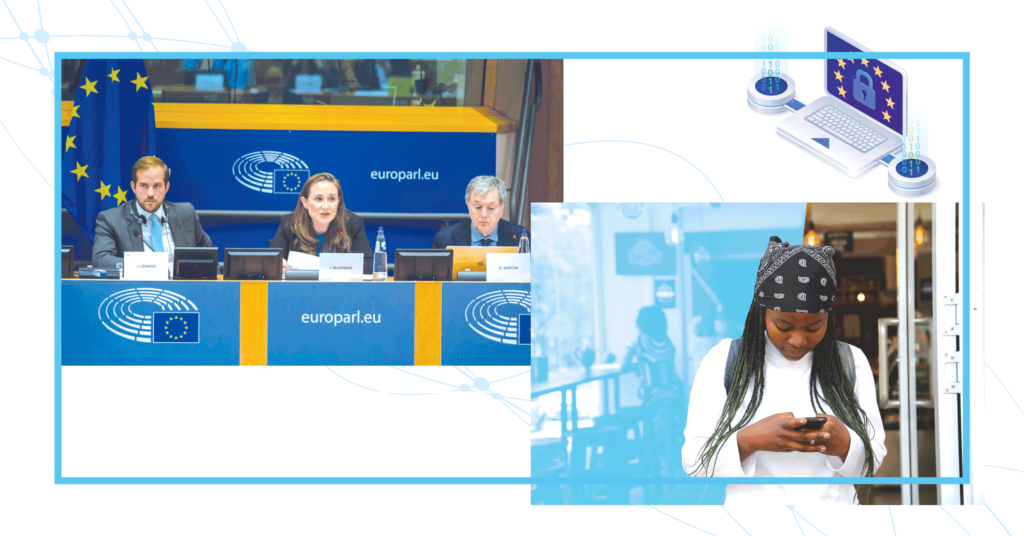2022 Annual Report: CDT Europe Fights to Put Human Rights at the Center of Historic EU Legislation

The landmark Digital Services Act (DSA) – legislation that has been referred to as the new constitution of the internet – was enacted in Brussels in 2022. To ensure that international human rights standards were kept central to the law, CDT Europe testified before the European Parliament; held press briefings and published op-eds; and served as a key convener to help civil society voices engage directly with decision-makers.
CDT Europe established a roundtable series designed to facilitate civil society dialogue with leaders on the DSA. In March and November, we brought together the French and Czech EU Presidencies, experts from national, regional and international organizations, EU decision-makers and civil society groups for in-depth debate. We discussed the gaps in fundamental rights protections and due diligence obligations that existed throughout the draft DSA proposal, how to ensure an effective enforcement regime, and how to improve civil society participation in the development and implementation of the DSA.
This year also saw CDT Europe ramp up its work on spyware: in October, CDT Europe Director Iverna McGowan testified before the European Parliament’s Inquiry on PEGASUS with an intervention focused on the implications of unlawful surveillance for democracy, human rights, and civic space. A new research project on the effectiveness of the EU’s Dual Use Regulation was also launched.
Our Europe team worked to put equity and equality at the heart of efforts to regulate artificial intelligence in the EU, advocating for the Council of Europe and European Union to adopt a rights-based approach to AI and help mitigate and prevent discriminatory outcomes from algorithmic systems. We coordinated with like-minded civil society groups to monitor and give input on the AI Act, and advocated for meaningful remedies for people who are harmed by AI tools. We also participated in the Council of Europe’s process to examine the feasibility and potential elements of a legal framework for AI. Finally, we launched a monthly bulletin that covers AI-related laws and policies, and their implications for Europe, fundamental rights, and democracy.
In 2022, European policymakers also tackled the challenging issue of combating online child sexual abuse materials (CSAM). We urged them to do so while protecting fundamental rights — the respect for private life, the right to free expression and association, and data protection. We explained that breaking end-to-end encryption is not the answer to online harms, as it cedes far too much power to governments to surveil citizens, and risks unleashing other violations of human rights. Rather, we urged leaders to understand that the abhorrent crime of CSAM demands a robust and holistic response that still respects and preserves the full spectrum of children’s rights.
CDT Europe also weighed in on efforts to preserve trans-Atlantic data transfers. When President Biden issued an Executive Order seeking to satisfy requirements set out by the Court of Justice of the European Union in the Schrems II decision, CDT concluded that the EO marked a significant step forward, but more work remained. Throughout the year, CDT convened and participated in a number of closed-door expert consultations about ways to support the privacy of data flowing between the U.S. and EU.
A whirlwind year of growth for CDT Europe was supported by five new foundation grants, which bolstered our policy and communications capacity. With several new members, the team made a major contribution to nearly every tech-related piece of legislation in the European Union.
Learn more about the work of CDT Europe at cdt.org/eu.